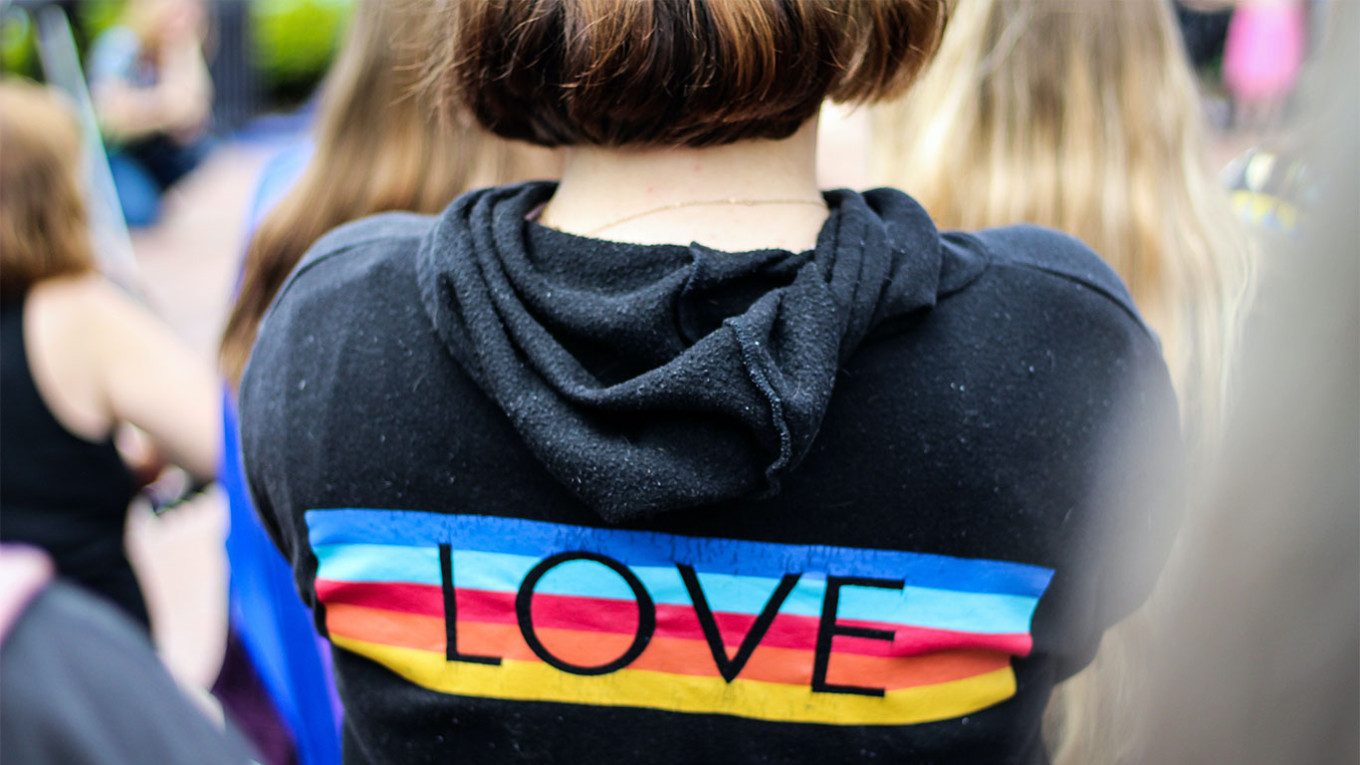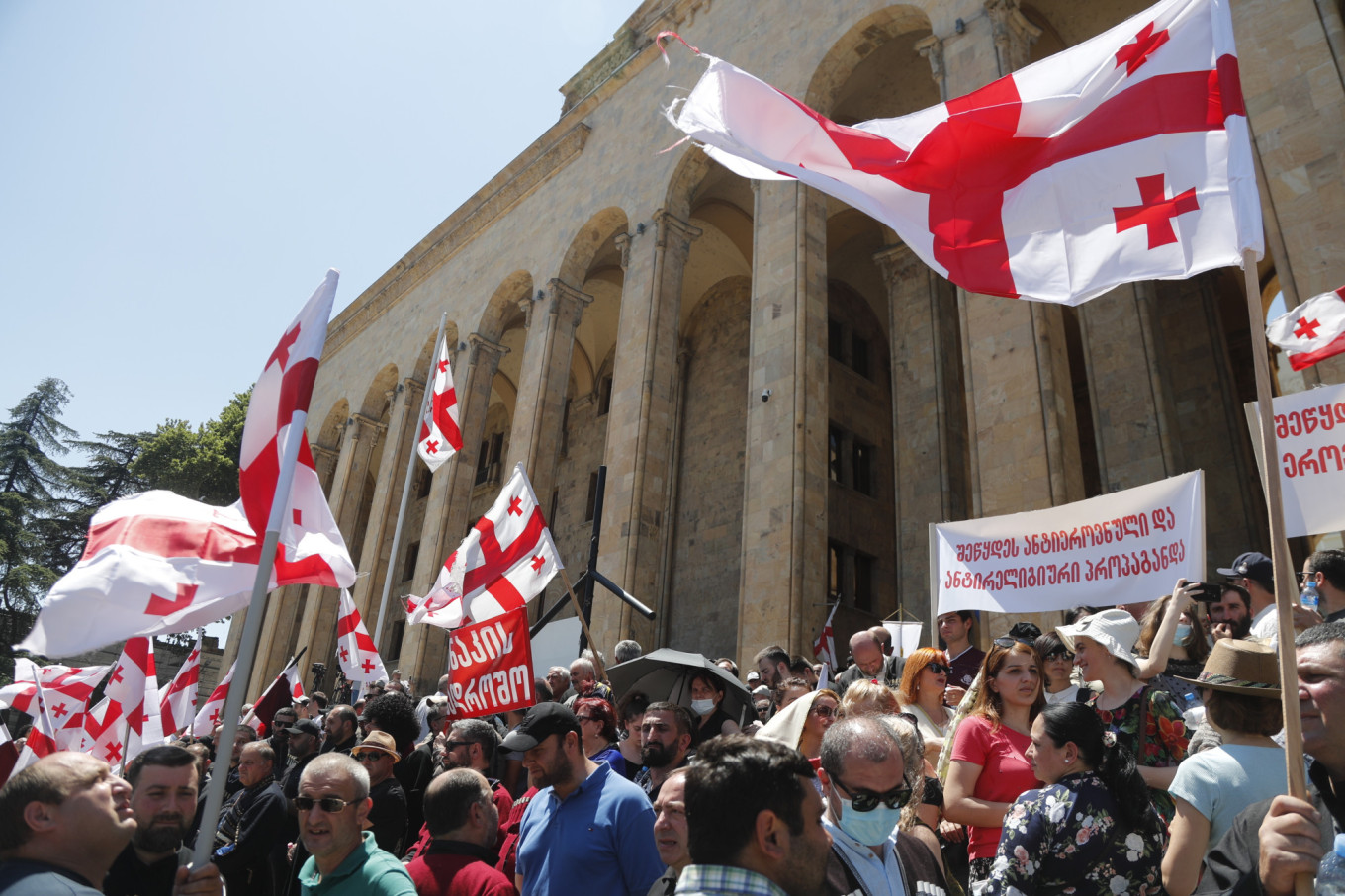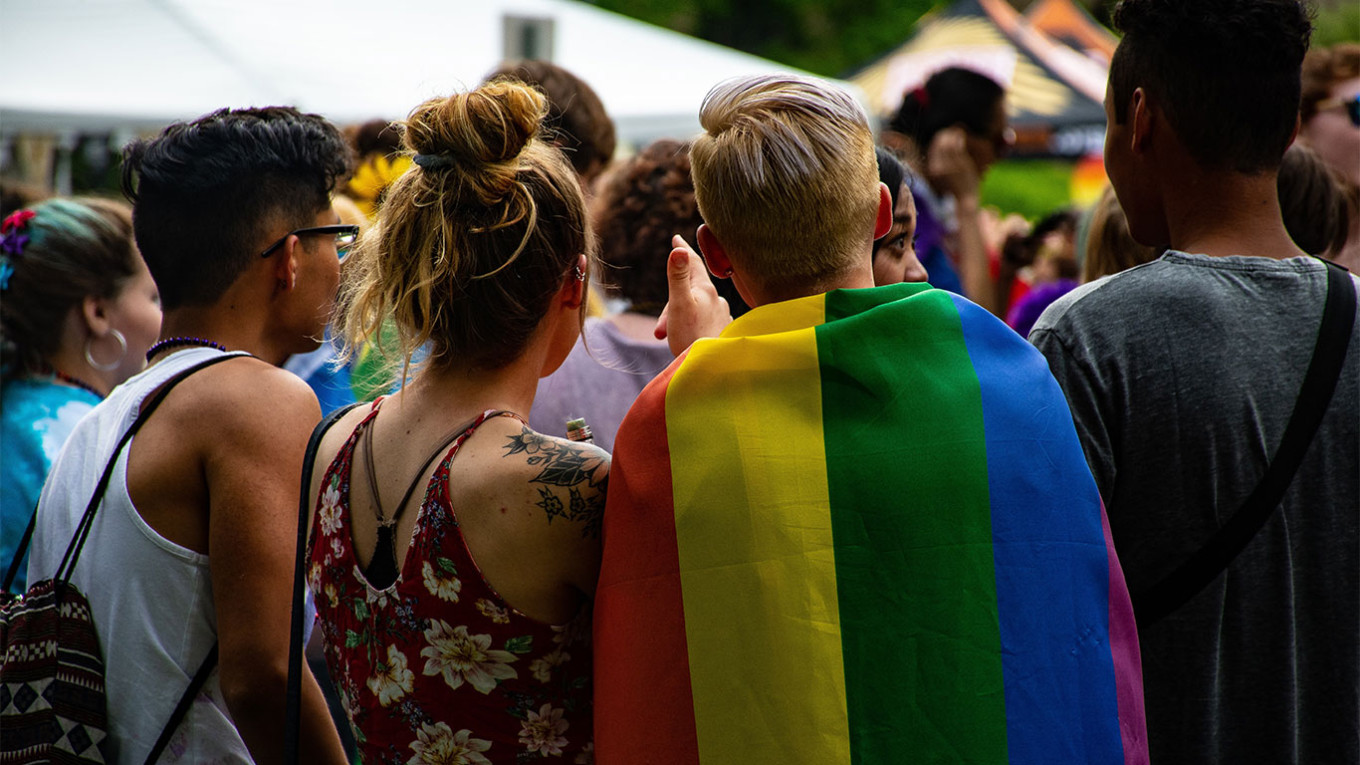YEREVAN, Armenia — When tens of thousands of Russians fled the country this spring following the Kremlin’s invasion of Ukraine, many chose to resettle in Armenia and Georgia.
But for LGBT Russians, their new homes in the conservative South Caucasus — where there are few protections against homophobic violence — may mean facing even greater risks than in the hostile environment they left behind.
Watching her friends in Russia being arrested for their anti-war activism, body-positive blogger and LGBT advocate Ollie decided to move to the Armenian capital to work with a project helping LGBT people affected by Russia’s invasion of Ukraine.
Ollie, 27, said she chose Yerevan because many Armenians speak Russian as a second language and Russians do not need a visa to enter the country.
“Nothing is scary after living [as an LGBT person] in Russia,” said Ollie, who declined to give her full name. “Here I have not experienced homophobia or transphobia… Probably around 50% of my queer acquaintances moved to Yerevan.”
Armenia and Georgia are socially conservative societies, and LGBT people face a number of legal and social obstacles, as well as discrimination and occasional violence. Armenia placed 47th out of 49 European and Eurasian countries in a ranking of civil liberties, protections and recognitions afforded to LGBT people.
Like Russia, the Armenian Constitution only recognizes marriage between men and women.
But while LGBT Armenians struggle for acceptance, a number of LGBT Russians said they feel safe in Armenia because — at least for the moment — they are treated as guests.
“It feels like local rules don’t apply to me as I’m a foreigner,” said one member of the Russian LGBT community in Armenia who requested anonymity to speak freely.

“Armenia has legal discrimination [against LGBT people], same-sex marriage is illegal and local LGBT communities are even more closed. It’s a conservative country. But I haven’t experienced discrimination,” she said.
Several local and international LGBT organizations in Armenia are working to help new Russian emigrants to integrate.
The Queer Svit project, where Ollie works as a marketing director, helps LGBT people from Ukraine, Russia and Belarus flee abroad and provides temporary shelter in Armenia.
In Armenia, locals are “tolerant” toward LGBT foreigners, said Mamikon Hovsepyan, the communications director at Pink Armenia.
“The capital is quite active and diverse and there are some [LGBT-friendly] places, cafes, clubs and parties, but the general attitude is negative,” he told The Moscow Times.
“[LGBT] Russians will be accepted by [Armenian] society unless they show their sexuality,” he added. “Homophobia usually targets the local community.”
Local human rights group Pink Armenia last year registered at least 35 human rights violations against LGBT people, as well as discrimination based on their sexual orientation, gender identity and expression.
A trans person was sexually assaulted in Yerevan in June.
The situation in neighboring Georgia is similar. A far-right group staged a rally to disrupt an LGBT event in the Georgian capital of Tbilisi earlier this summer and one of the group’s members died after setting himself on fire in a protest against non-traditional relationships.
Russian activist Alexander Sofeev, who visited the event targeted by protesters, said the situation was tense, but police ensured the safety of participants.
“I think the Georgian government does not promote homophobia, it is usually done by individual far-right activists,” Sofeev, a member of the Pussy Riot feminist art group who moved to Tbilisi last year, told The Moscow Times.
“On the contrary, in Russia, it [homophobia] is imposed at the state level,” he said.

Russian activists said that Moscow’s crackdown on anything perceived as “Western” in the wake of the war has had an acute impact on the LGBT community.
“Tensions in Russian society have increased since the war began and it affects the most vulnerable groups, including sexual minorities,” said Anna Akulina, 32, who left the southern city of Rostov-on-Don for Yerevan in early April.
Since the Kremlin launched its invasion of Ukraine in February, Russian state television coverage has cast LGBT rights as foreign values that threaten the country. A Chechen military commander said on state television last month that Russia is fighting a “holy war” against “satanist values” such as LGBT rights.
Last month Russian lawmakers submitted legislation that would ban any information deemed “LGBT propaganda.”
“Russia is not a safe place for a queer person: you face being outed at work, bullying, even beatings. You get used to hiding all the time in Russia,” said body-positive blogger Ollie.
Many LGBT Russians fled abroad in fear of human rights abuses if they were detained or arrested by Russian police for their anti-war views.
“Can you imagine me calling the police in Russia if anything happens? I cannot. I don't trust them,” Ivan Sokolov, who is openly gay, told The Moscow Times.
“I’m more likely to get help [from the police] in Armenia.”
But Sokolov, 23, who moved to Yerevan a week after the war started, said he’s experienced homophobic slurs, and that he worries about what might happen in the future.
“I feel safer here than in Russia,” he said. “But what will the situation be in three or six months?”
A Message from The Moscow Times:
Dear readers,
We are facing unprecedented challenges. Russia's Prosecutor General's Office has designated The Moscow Times as an "undesirable" organization, criminalizing our work and putting our staff at risk of prosecution. This follows our earlier unjust labeling as a "foreign agent."
These actions are direct attempts to silence independent journalism in Russia. The authorities claim our work "discredits the decisions of the Russian leadership." We see things differently: we strive to provide accurate, unbiased reporting on Russia.
We, the journalists of The Moscow Times, refuse to be silenced. But to continue our work, we need your help.
Your support, no matter how small, makes a world of difference. If you can, please support us monthly starting from just $2. It's quick to set up, and every contribution makes a significant impact.
By supporting The Moscow Times, you're defending open, independent journalism in the face of repression. Thank you for standing with us.
Remind me later.







